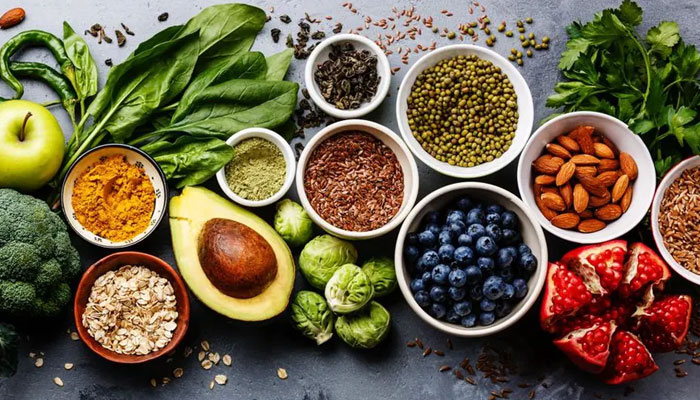No radical diets required: Transform your health with these 7 manageable food goals
These tips aid in increasing life expectancy, a flourishing gut microbiome and enhanced overall well-being
December 27, 2023

Embarking on a journey toward better health doesn't necessitate a radical diet overhaul. Simple yet impactful changes to your eating habits can contribute to weight loss, increased life expectancy, a flourishing gut microbiome, and enhanced overall well-being.
1. Microbe-friendly foods
Embrace the "microbiome enhancer diet" by incorporating fibre-rich foods like oats, beans, lentils, chickpeas, brown rice, quinoa, nuts, fruits, and vegetables. This supports both you and your gut microbiome, potentially reducing calorie intake.
2. Cut back on packaged foods
Opt for minimally processed, seasonal, grass-fed, whole grain, and pasture-raised options. Steering clear of ultra-processed foods may prevent overconsumption and associated health risks.
3. Healthy carbs
Instead of eliminating carbs, focus on quality ones like vegetables, whole grains, beans, and lentils, and incorporate healthy fats and proteins. Swapping refined carbs for whole grains can aid in weight management and reduce the risk of chronic diseases.
4. Eat like a centenarian
Emulate the dietary habits of those in "Blue Zones" by including legumes daily. Studies highlight the longevity benefits of diets rich in beans, chickpeas, and lentils.
5. Smaller dinners
Optimal health involves consuming the majority of calories earlier in the day. Prioritise a substantial breakfast, a moderate lunch, and a smaller dinner for improved metabolic effects and weight loss.
6. Diverse diet for gut health
Nurture your gut microbes by consuming a variety of fibre-rich plants, spices, nuts, and fermented foods. Aim for around 30 different plant foods weekly to promote gut health.
7. Meal sequencing
Adopt a strategic approach to meal sequencing by starting with vegetables, followed by proteins and fats. Saving bread or chips for the end of a meal may enhance blood sugar control and prolong the feeling of fullness.
Incorporating these achievable food goals can pave the way for significant health improvements without resorting to drastic dieting measures.









